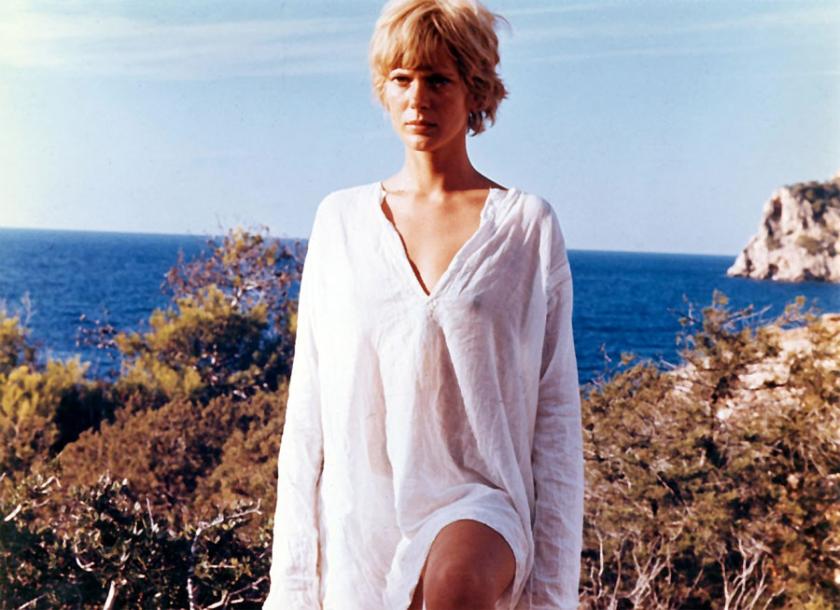It’s hard to imagine a director being able to make a film like More today. The plot could be written on the back of one of the soft-packs of cigarettes being constantly smoked in the movie; the characters are unlikeable; there’s little in the way of emotional engagement; the music, by “The” Pink Floyd, is used only as part of the action, ie, coming out of cassette players, record players, and so on, rather than as an actual soundtrack; the editing has a deliberately un-rhythmic, un-fluid, nouvelle vague quality; the camerawork is unostentatious; the acting and the dialogue are flat and stilted. And it’s about heroin.
Mimsy Farmer (pictured above) and Klaus Grünberg play Estelle and Stefan, a couple of wasters who hitch onto the coat-tails of the hippie culture, which itself was approaching its fag-end at the time Barbet Schroeder made More, in 1969. They meet in Paris and then hang out in a house on Ibiza, where they take drugs.
Although it shows the consequences of heroin addiction, this is not an especially preachy film; it just sets out the events in a flat, deadpan, matter-of-fact way. In fact, as I watched Stefan and Estelle’s descent (or rather, given that it is apparently inspired by the myth of Icarus, their ascent) into heroin addiction, my chief emotion was a desire to slap the impassive hippie types they were hanging out with and tell them to go and get a life. Why are they there? Ibiza looks horrible, and all anyone seems to do is sit around staring into space looking enigmatic.
In fact, the people who have the most fun in More are a bunch of German tourists who sing bierkeller songs in a bar while Estelle’s mysterious older German friend (now, there’s a man with a hinterland) plays the accordion. The ability to be spontaneously, unselfconsciously happy is what they have, and it’s what absolutely everyone else in this strange, bleak film lacks.
So, More is not a film that will warm the cockles of your heart. But its value lies in providing a glimpse back into a time when the dominant aesthetic in European filmmaking was almost unrecognisable from that which prevails today.















Add comment